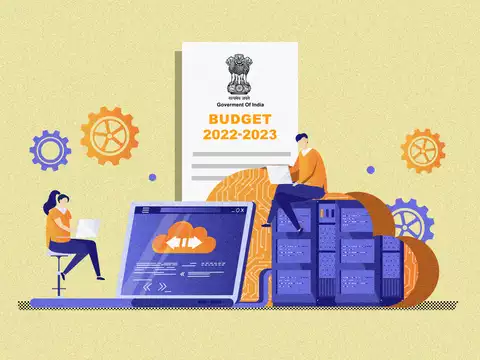-KH News Desk (cbedit@imaws.org)
The Finance Minister Nirmala Sitharaman presented the Union Budget in the Lok Sabha on 1 February 2023. She talked about how inclusive development is one of the four priorities of the government moving forward.
The Budget allocation for the Ministry of Agriculture and Farmers’ Welfare has been raised marginally by 4.5 per cent to Rs 1,32,513 crore for 2022-23 fiscal.
The Budget allocation for the Ministry of Fisheries, Animal Husbandry and Dairying has been increased by 44 per cent to Rs 6,407.31 crore and for Food Processing Industries by 2.25 times to Rs 2,941.99 crore for the next fiscal.

Commenting on the changes in the budget introduced, Mr. Ghanshyam Khandelwal, Chairman, BL Agro – FMCG company said, “This year’s budget went beyond the realm of imagination. While it did not shed any particular light on the FMCG sector, it broadened the horizon and touched upon every area where India needed growth and progress. Instead of narrowing the focus to a limited niche or industry, it supports every area of potential in the economy, from MSME to education, from AI to green energy.
In that aspect and the control of the fiscal deficit, the budget threads the needle with precision and indeed is praiseworthy. The three niches of concentration were skill enhancement, filling the gaps in production or infrastructure, and health.
Take, for instance, health and wellness. The colleges for nurses are only part of it; the push on millet is an ancillary route to wellness. Millets like jowar and bajra are a natural way to provide the body with supplements, offering more holistic nourishment. Overall, it’s a Swadeshi budget through and through that equally benefits all and sets the country on a path to steep progress and development.”

Adding onto the same thought, Dipak Sanghavi, Managing Director, Nilon’s, said, “The 2023-24 Union Budget appears to be well-balanced and forward-thinking. The Finance Minister has successfully managed to increase capital expenditure by 33% while lowering the fiscal deficit from 6.4% to 5.9%. This action will further improve the stability of the Indian economy. The investment in Capital Expenditure will enhance productivity in the long run and reduce inflation.
The food processing industry plays a crucial role in enhancing agricultural efficiency and generating income. The emphasis on promoting millet cultivation, consumption, and exports, combined with increased investment in fisheries and support for natural farming, is beneficial for crop diversification, sustainability, and nutritional improvement.
As a consumer brand, we are happy to welcome the much-needed revision in the tax slab. The revised tax slab under the new regime is a positive change as it allows more money to be in the hands of people, which can boost the economy and increase consumption in the FMCG sector.
We also anticipate other policies and reforms that will enhance the industry, such as tax incentives, streamlined clearance processes, and simplification of the GST for raw materials. All in all, this has been an inclusive budget.”

Teja Chekuri, Managing Partner at Ironhill India also added to the same, “We were hoping that in this budget, some critical issues such as the introduction of ITC (input tax credit), liquidity focused credit lines and single window clearance for all restaurant licenses will be looked into. It would have helped if the government would, have addressed the issue of unemployment in the hospitality sector and introduced healthy regulations in place to improve the ease of doing business and helped to generate employment in the sector.”

Viren D’Silva, Co- Founder at GOOD FLIPPIN’ BURGERS also gave his thoughts regarding the budget, “It’s very good news for startups that Government has extended the tax holidays by one year, i.e, till March 2024. We were hoping the government would also increase the total turnover by Rs 50 cr from the earlier 25 cr. This would have been a booster dose for startups who were incorporated after 2017 and faced the tough time.”







